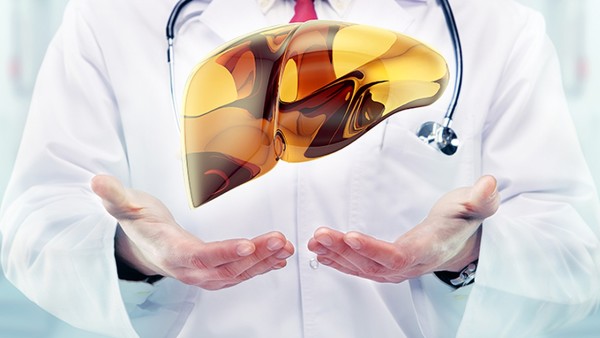Prostate Cancer Patients Should Learn to Say No to Fat

Prostate cancer is the most common cancer among men in the United States, with over 240,000 new cases diagnosed each year. While there are a number of risk factors for prostate cancer, including age, race, and family history, diet is also believed to play a role.
In particular, a diet high in fat has been linked to an increased risk of prostate cancer. This is because fat can promote the growth of cancer cells and can also lead to inflammation, which can further contribute to cancer development.
For prostate cancer patients, it is important to limit your intake of fat. This means eating less red meat, processed meats, and full-fat dairy products. It also means limiting your intake of unhealthy fats, such as saturated and trans fats. These fats are found in many processed foods, such as cookies, crackers, and chips.
Instead, focus on eating a diet that is rich in fruits, vegetables, and whole grains. These foods are low in fat and high in fiber, which can help to protect against prostate cancer. You should also eat lean protein, such as fish, chicken, and beans.
Here are some tips for reducing your intake of fat:
Choose lean protein sources, such as fish, chicken, and beans.
Limit your intake of red meat and processed meats.
Choose low-fat or non-fat dairy products.
Limit your intake of unhealthy fats, such as saturated and trans fats. These fats are found in many processed foods, such as cookies, crackers, and chips.
Eat a diet that is rich in fruits, vegetables, and whole grains. These foods are low in fat and high in fiber, which can help to protect against prostate cancer.
By following these tips, you can help to reduce your risk of prostate cancer and improve your overall health.
Prostate Cancer and Diet
The link between diet and prostate cancer is complex, but there is some evidence that eating a healthy diet can help to reduce your risk of developing the disease.
In general, a healthy diet for prostate cancer patients includes:
Eating plenty of fruits and vegetables. Fruits and vegetables are high in antioxidants, which can help to protect cells from damage. They are also low in fat and calories, which can help to maintain a healthy weight.
Choosing lean protein sources. Lean protein sources, such as fish, chicken, and beans, are low in fat and calories. They can help to build and maintain muscle mass, which is important for overall health.
Limiting your intake of unhealthy fats. Unhealthy fats, such as saturated and trans fats, can increase your risk of heart disease and stroke. They can also contribute to weight gain, which can increase your risk of prostate cancer.
Eating whole grains. Whole grains are a good source of fiber, which can help to lower cholesterol levels and reduce your risk of heart disease. They can also help to keep you feeling full, which can help to maintain a healthy weight.
There is some evidence that certain foods may be particularly beneficial for prostate cancer patients. These foods include:
Tomatoes. Tomatoes are a good source of lycopene, an antioxidant that has been shown to have anti-cancer properties.
Green tea. Green tea contains antioxidants that have been shown to inhibit the growth of cancer cells.
Fish. Fish is a good source of omega-3 fatty acids, which have been shown to have anti-inflammatory properties.
Soy. Soy contains isoflavones, which are plant compounds that have been shown to have anti-cancer properties.
It is important to note that there is no one-size-fits-all diet for prostate cancer patients. The best diet for you will depend on your individual needs and preferences. It is important to talk to your doctor or a registered dietitian to develop a diet that is right for you.
Prostate Cancer Prevention
In addition to following a healthy diet, there are a number of other things you can do to reduce your risk of prostate cancer. These include:
Maintaining a healthy weight. Obesity is a risk factor for prostate cancer. Losing weight can help to reduce your risk of developing the disease.
Getting regular exercise. Exercise can help to reduce your risk of prostate cancer by maintaining a healthy weight and reducing inflammation.
Avoiding tobacco smoke. Smoking cigarettes increases your risk of prostate cancer. Quitting smoking can help to reduce your risk of developing the disease.
Limiting alcohol intake. Drinking alcohol in excess can increase your risk of prostate cancer. Limiting your alcohol intake can help to reduce your risk of developing the disease.
Getting regular screenings. Prostate cancer screening can help to detect the disease early, when it is most treatable. Men over the age of 50 should talk to their doctor about getting a prostate cancer screening.
By following these tips, you can help to reduce your risk of prostate cancer and improve your overall health.
The above is all the content that the editor wants to share with you. I sincerely hope that these contents can bring some help to your life and health, and I also wish that your life will be happier and happier.
Topic: #patients #should #prostate- • How vitiligo patients should use medication safely
- • Patients with endocrine disorders should eat five more foods
- • Four points that patients with chancroid need to pay attention to
- • Restoring patients’ confidence with own hair transplants
- • What to do if patients with advanced liver cancer have hydroabdominal fluid















